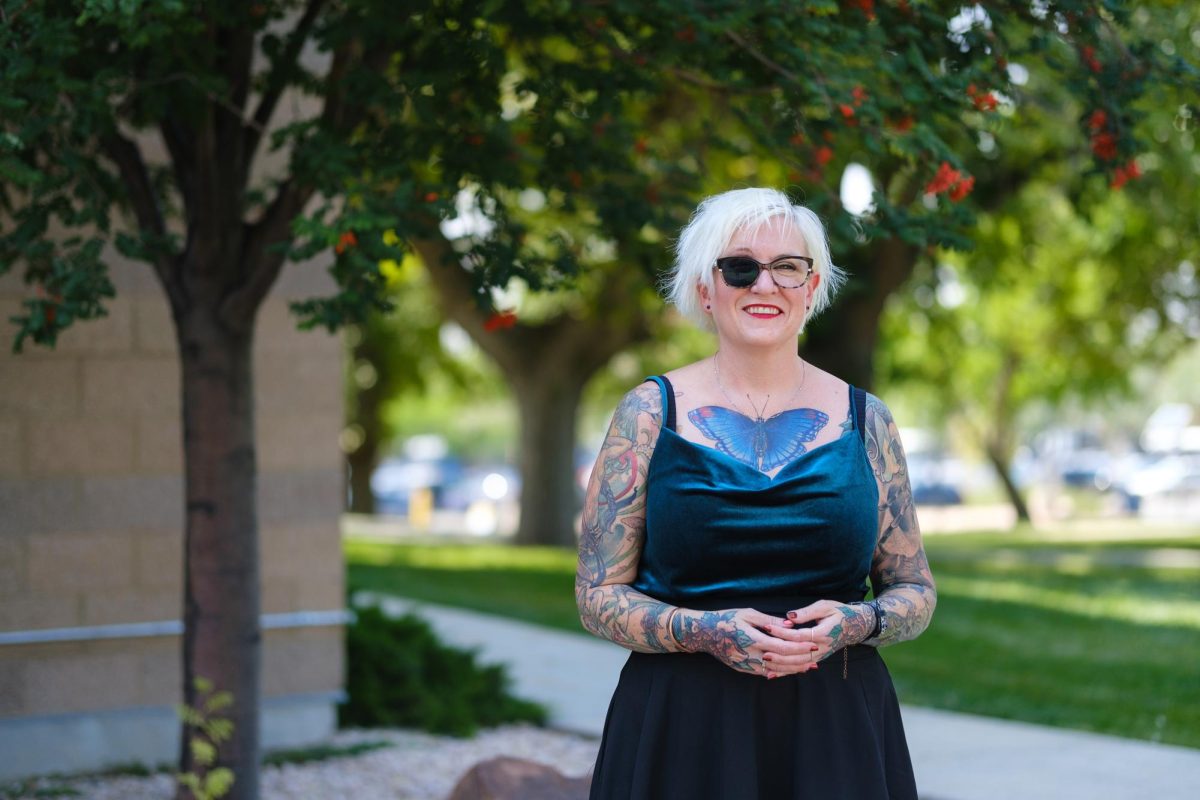I spent my freshman year of college in labs and lecture halls as a biology student. I have a distinct memory of what research looked like for me — running around in a lab coat and latex gloves, searching vehemently for an objective answer to a research question.
Many of us likely picture the same thing when thinking about academic research, especially while attending a school that specializes in science and medicine. When meeting with Professor Jenny Andrus, however, my idea of research got flipped on its head.
Andrus employs discourse analysis, which the International Encyclopedia of Education defines as the epistemological framework for investigating discourse. It allows the analyst to describe the complexity of discourse — in Andrus’ case, researching the stories of domestic abuse survivors. She’s a master of making meaning from tragedy. She brings stories of victims together to create an overarching narrative that none of us are alone in our struggles. She shows that qualitative data, or the stories we tell, are just as important to research as the quantitative data we all usually expect.
Narratives as a Research Tool
For her research, Andrus meets with domestic abuse survivors and listens to their stories.
“I do interviews and I ask for narratives, or I get around to narratives by asking questions,” Andrus explained. “That prompts people to tell stories about experiences.”
She studies how survivors speak about themselves and their experiences and looks for patterns in their speech.
“I study those narratives to figure out how those narratives contribute to individual sense of identity and then how individual identity can be traced across or tracked across a number of different people — so that’s how you can see a sort of group identity, by first looking for individual identities,” Andrus said.
While statistics and quantitative data can help conduct research, Andrus finds more value in the qualitative data — stories that add to the statistics. She said that they add a “richness” to the data that would have otherwise gone unseen by researchers.
“Trauma stories are really hard to tell,” Andrus said. We have to remember that these real events have happened to real people, and therefore shouldn’t be overlooked. They can be just as important as any other collected data.
Grand Canyon University notes that the collection of qualitative data allows for more freedom in answers. Through focus groups, interviews or observations, researchers can explore the full scope of stories and experiences, not just the numbers on paper.
The Importance of Stories
Andrus started in the field while researching a law called the excited utterance exception to hearsay. Cornell Law School states the law is an exception to hearsay if it is a statement relating to a startling event or condition, made while the declarant was under the stress of excitement that it caused.
“I was interested in this particular law because of the way it thinks about language.” Andrus explained. “It thinks that there can be some utterances that are objectively true because they’re said excitedly, and so the subjectivity of the speaker was essentially turned off and then the thing that was said was 100% true. In this case, a story someone is telling becomes the truth in terms of the law.”
But Andrus doesn’t believe in objectivity. “I don’t care about ‘truth,’” she said. “I care about how people story their experiences.” She focuses on how people talk about their experiences, and how it all fits into the bigger picture.
As a domestic abuse survivor herself, she understands the value of approaching with empathy, while looking for connections with the people she’s interviewing.
“I do interviews with really rich details of stories that I can say, ‘Oh, yeah, that happened to me,’” Andrus said. “And then they can say, ‘Oh, yeah, that happened to me,’ and we can actually have a conversation. It produces really great interviews if you can turn it into a conversation rather than a list of questions and answers.”
This communication is what guides conversations, which pushes research forward.
“I would love to see more narrative analysis,” she said, “And people paying more attention to the way that people are talking about their experiences, rather than just counting the details of their experiences.”
Andrus completely subverted my expectations. As a researcher, she has more interest in perspective, experience and subjectivity. More empathy exists in her practice than if she were to only study quantitative data. By meeting with domestic abuse survivors individually and connecting with them, Andrus produces research that is well-rounded and admirable. Her work is an excellent case study on the quality and importance of the stories that make up said research — things we should pay more attention to as students.




